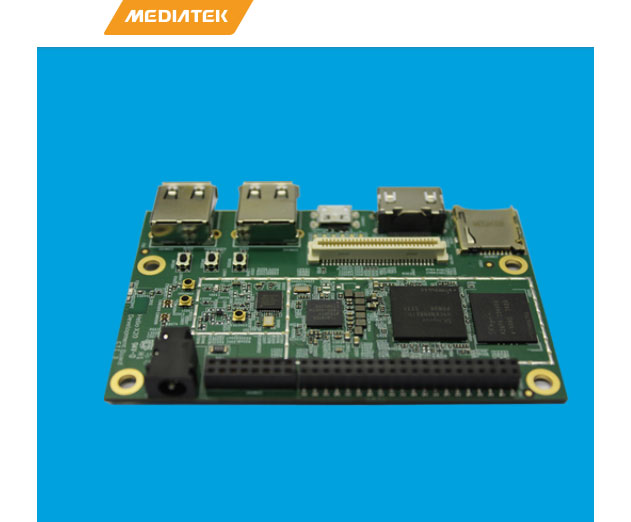IoT
MediaTek Targets Android Developers with New Helio X20 IoT Development Board
Wednesday, June 29, 2016

|
Richard Harris |

Targeting Android IoT developers, MediaTek has introduced a new Helio X20 Development Board, based on MediaTek’s Helio X20 mobile processor, offering a development board using Tri-Cluster deca-core structure and ARM Cortex-A72 technology.
The MediaTek Helio X20 is based on the Linaro 96 Boards standard, featuring ARM Cortex-A72 cores within a tri-cluster, deca-core processing architecture. This state-of-the-art platform provides computing performance coupled with power efficiency adding to MediaTek’s Internet of Things (IoT) offerings and is designed for Android developers who can use the board to build solutions for existing and emerging markets including virtual reality, advanced driver assisted systems (ADAS), mobile point-of-sale, smart signage, vending machines and more.
The new board leverages MediaTek involvement with Linaro, an open-source organization, to support the 96Boards open hardware standard. Using the Linaro 96Boards specification, the Helio X20 is compatible with other 96Boards products for other solutions.
MediaTek’s Helio X20 Development Board leverages the Tri-Cluster deca-core structure to efficiently handle different types of workloads. It can delegate simple tasks to one cluster of cores, while directing more complex and more power-hungry tasks to the other clusters,
The Helio X20 Development Board will be available in Asia soon and can be purchased from ArcherMind Technology.
Read more: http://scopetrader.com/partner/link/?ref=MediaTek

Become a subscriber of App Developer Magazine for just $5.99 a month and take advantage of all these perks.
MEMBERS GET ACCESS TO
- - Exclusive content from leaders in the industry
- - Q&A articles from industry leaders
- - Tips and tricks from the most successful developers weekly
- - Monthly issues, including all 90+ back-issues since 2012
- - Event discounts and early-bird signups
- - Gain insight from top achievers in the app store
- - Learn what tools to use, what SDK's to use, and more
Subscribe here













Comments